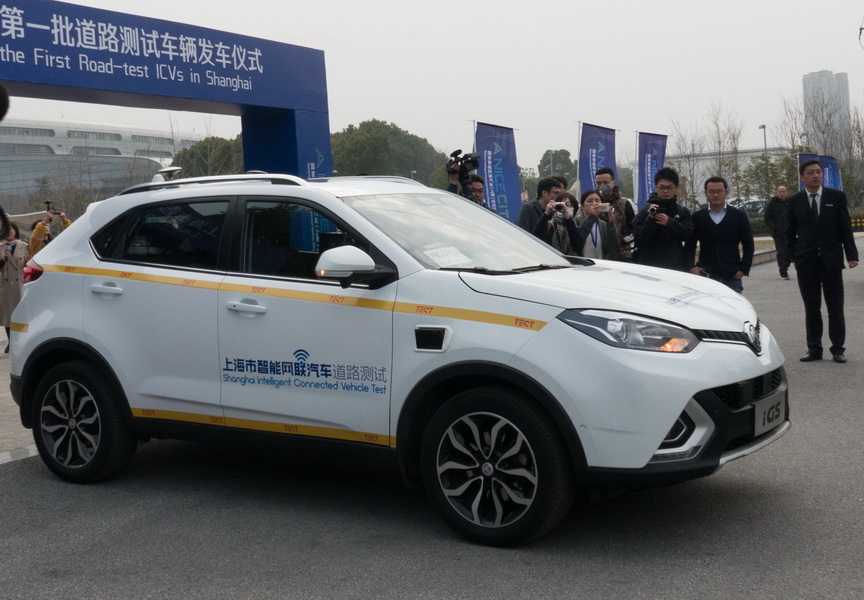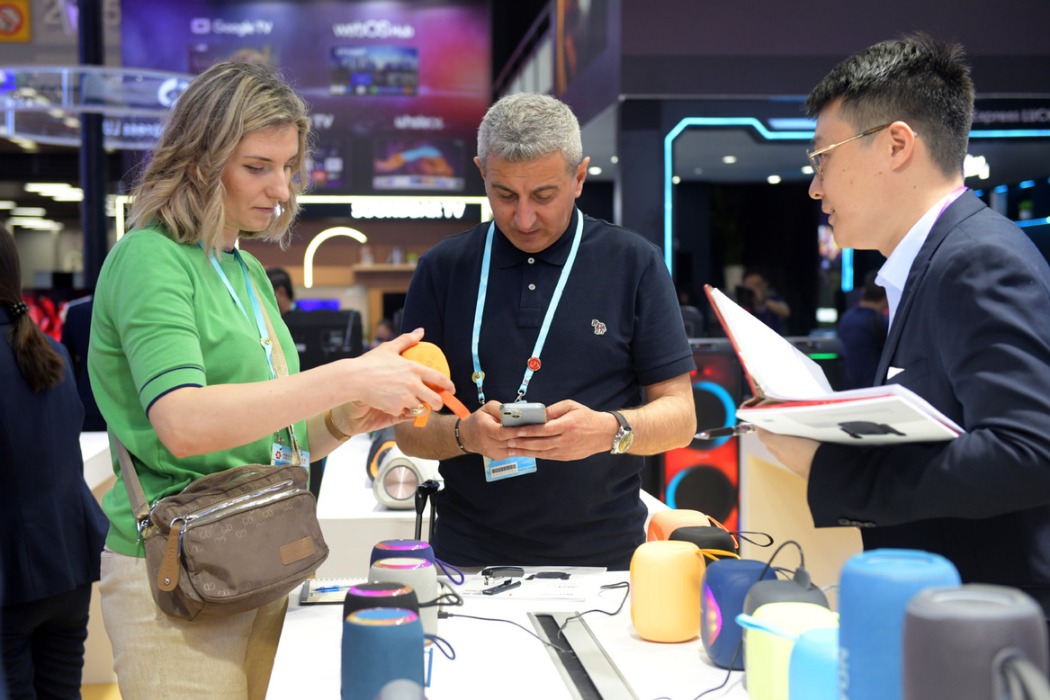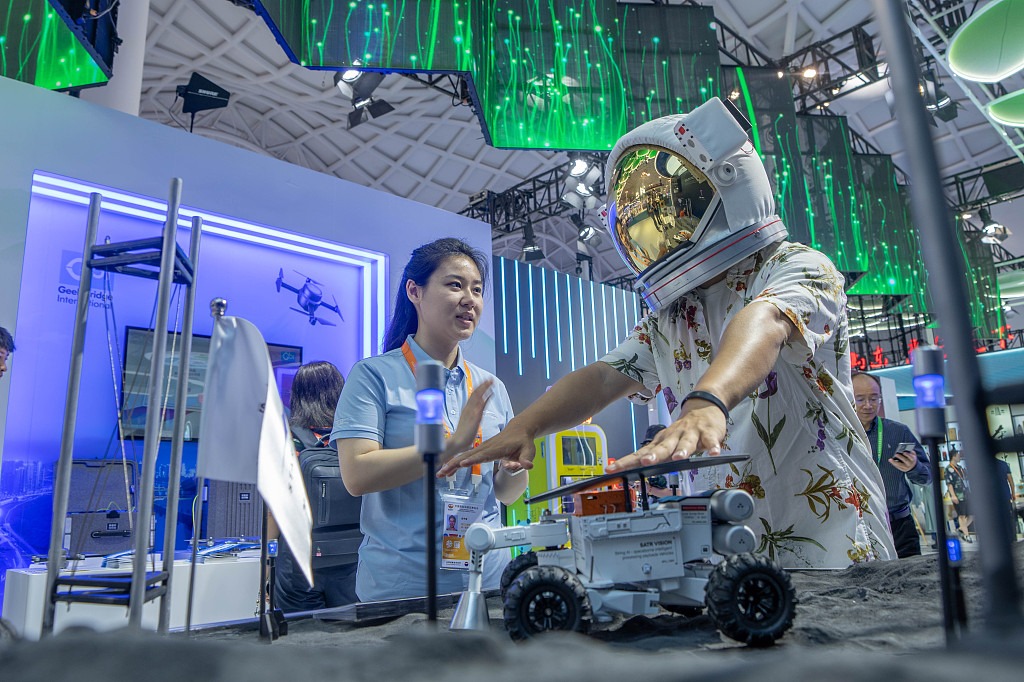Shanghai takes another step to push connected car road tests


China's first batch of car plates for road tests of connected cars was issued in Shanghai on Thursday, allowing vehicles to be test driven on a 5.6 kilometer-long road, which demonstrates the lead the city has taken in applying intelligent and connected car technologies across the country.
Two intelligent connected vehicles made their first open road test at the National Intelligent Connected Vehicle (Shanghai) Pilot Zone, China's first intelligent connected car demonstration area, on Thursday afternoon.
SAIC Motor Corp Ltd (SAIC Motor), the largest auto company on China's A-share market, and Shanghai-based electric car startup NextEV have received a total of three car plates for testing their intelligent connected cars.
Drivers are required to have at least 50 hours of experience in operating driverless systems and the test drive should abide by existing regulations.
SAIC plans to release mass-produced cars this year equipped with intelligent driving technologies to help improve traffic flow, access to parking and driving safety.
Since 2013, SAIC has tested intelligent driving in closed laboratories, roads, expressways, underground parking garages and other specific areas. The total vehicle testing distance totaled 50,000 kilometers.
On Thursday, Shanghai also issued regulations for intelligent connected cars, becoming the second Chinese city to release rules regarding road tests of autonomous vehicles after Beijing.
Intelligent connected vehicles, or connected cars, can be seen as a moving network. They not only have access to internet, but also intelligent connections with other vehicles, traffic and the environment, which will make the drive safer, easier, more comfortable and efficient.
The Ministry of Industry and Information Technology has set a goal that by 2020, half of China's new cars and vehicles will become intelligent, wireless networks will cover 90 percent of cars in major Chinese cities, and all cars will be covered by China's homegrown satellite navigation system Beidou.
"The rules and regulations are Shanghai's answer to the global automotive industry's ongoing transition and innovation. The city aims to build an automobile sector that is high-end, intelligent and connected," said Huang Ou, deputy director of the Shanghai Municipal Commission of Economy and Information Technology.
The 5.6 kilometer open road for test drives is located in Jiading district. According to the district's deputy head Lu Zufang, there are as many as 200 test scenarios for intelligent driving within the closed testing area.
The automotive sector in Shanghai grew 19.1 percent year-on-year to 677.4 billion yuan ($106.7 billion) in revenue in 2017, accounting for 19.9 percent of the city's total industrial output value.




































